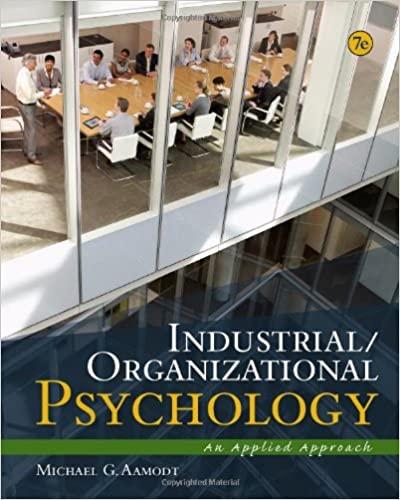Question
If ABC Corp. purchases a piece of new equipment for $60,000 cash, it expects to see the following revenues: Year 1 = $24,000, Year 2
If ABC Corp. purchases a piece of new equipment for $60,000 cash, it expects to see the following revenues: Year 1 = $24,000, Year 2 = 27,300, Year 3 = 25,000,Year 4 = 12,000.If it wants to consider the time value of money in to determine whether the purchase is a wise choice, its should use a:
a. Present Value of Annuity Table.
b. Future Value of Annuity Table.
c. Present Value of $1 Table
d. Payback Table.
If you calculate the Internal Rate of Return on an investment, and the resulting rate is less than the "hurdle rate," the analysis suggests that you should undertake the investment.
True
False
Management is considering buying an automated blood analysis machine that will significantly reduce the time for analyzing a blood sample.The machine will cost $80,000.00, and will be paid for with cash at the time of purchase.The machine's operating life is four years, and management expects it will be sold for scrap immediately, at the end of its operating life. The expected scrap price is $5,000.00.During its four year operating life, however, expected savings in annual variable costs should amount to roughly $30,000.00 (measured at the end of each year). The company's typical cost of capital is 8%.The net present value of this investment is closest to which number:
$45,000.
$23,038.
$21,332.
$19,363.
If using Present Value Tables (such as those shown in the appendix to Chapter 8 of the textbook), you can use the Present Value of $1 Table (Figure 8.9) to calculate present value when the annual savings generated (or revenues earned) are identical each year (i.e., they are an annuity).The primary difference between the two tables is that the annuity table saves you time.
True
False
Assume ABC company is in a 40% tax bracket.It makes an investment in equipment that generates annual revenues of $40,000 on a pre-tax basis. If the company is in a 40% tax bracket, the after-tax impact of the new revenues will be $24,000 annually.
True
False
In Net Present Value Analysis, as the applicable interest rate increases, the present value of future cash flows decreases.
True
False
Assume that XYZ Company's income tax rate is 25%.If a cash investment in equipment generates a $20,000 annual depreciation deduction, the impact of the depreciation on net cash flow after-taxes is:
$20,000 increase.
$15,000 increase.
$5,000 increase.
0, since the depreciation expense does not require a cash outflow.
With the Internal Rate of Return Method of Capital Budgeting, you find the interest rate that results in the present value of cash outflows being exactly equal to the present value of cash inflows.
True
False
As the applicable interest rate (r) decreases, the present value of a series of future cash flows:
Increases.
Decreases.
The present value can increase or decrease, depending on how much the applicable interest rate increases.
Neither.The interest rates does not affect present value.
If a long-term investment decision is being analyzed using the Net Present Value of Cash Flows method in an economy that has a considerable bit of inflation, cash flow projections based on today's dollars must be adjusted upward to account for the impact of inflation.
True
False
When using the Net Present Value Method, the more risky the investment being considered, the higher the applicable discount rate that should be used.
True
False
XYZ Company is trying to determine whether it should make a $500,000 investment in a new plant.The present value of the investment is $485,000.That number suggests that XYZ should not make the investment.
True
False
The internal rate of return function (IRR) gives you:
The breakeven point in dollars for an investment.
The present value of the investment.
The payback period for an investment.
The applicable interest rate that makes adjusted cash in-flows equal to the adjusted cash-outflows for an investment.
Using future value tables such as those available via the online link for this module, if you invest $1,000 today at an annual percentage rate (APR) of 10%, the total value of the investment in two years will be $120.00
True
False
The Payback Method of Capital Budget is generally preferred to Net Present Value Method because the Payback Method considers the time value of money.
True
False
Step by Step Solution
There are 3 Steps involved in it
Step: 1

Get Instant Access to Expert-Tailored Solutions
See step-by-step solutions with expert insights and AI powered tools for academic success
Step: 2

Step: 3

Ace Your Homework with AI
Get the answers you need in no time with our AI-driven, step-by-step assistance
Get Started


